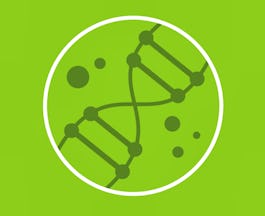Filter by
SubjectRequired
LanguageRequired
The language used throughout the course, in both instruction and assessments.
Learning ProductRequired
LevelRequired
DurationRequired
SkillsRequired
SubtitlesRequired
EducatorRequired
Explore the Biotechnology Course Catalog



University of Manchester
Skills you'll gain: Process Engineering, Molecular Biology, Chemical Engineering, Life Sciences, Biochemistry, Bioinformatics, Biology, Pharmaceuticals, Environmental Engineering, Manufacturing Processes, Process Development, Microbiology


University of California San Diego
Skills you'll gain: Life Sciences, Environmental Issue, Corporate Sustainability, Regulatory Requirements, Chemical and Biomedical Engineering, Biochemistry, Commercialization, Regulatory Affairs, Company, Product, and Service Knowledge, Production Process, New Product Development, Product Development, Environmental Engineering, Molecular, Cellular, and Microbiology, Biology, Innovation


Duke University
Skills you'll gain: Life Sciences, Molecular Biology, Biology, Biostatistics, Bioinformatics, Environment, Laboratory Research, Taxonomy, Scientific Methods, Experimentation, Mathematical Modeling


Technical University of Denmark (DTU)
Skills you'll gain: Intellectual Property, Chemistry, Legal Risk, Regulation and Legal Compliance, Keyword Research, Molecular Biology, Strategic Thinking, Database Management Systems, Technical Writing, Research Reports, Databases
 Status: Free Trial
Status: Free Trial
Johns Hopkins University
Skills you'll gain: Oncology, Medical Imaging, Patient Education And Counseling, Molecular Biology, Clinical Trials, Preventative Care, Treatment Planning, Patient Evaluation, Primary Care, Pathology, Urology, Patient Treatment, Health Care, Internal Medicine, General Medical Tests and Procedures, Laboratory Testing, Precision Medicine, Anatomy, Biology, Medical Terminology
 Status: Free Trial
Status: Free Trial
University of California San Diego
Skills you'll gain: Clinical Trials, Pharmaceuticals, Clinical Research, Commercialization, Pharmacotherapy, Pharmacology, Regulatory Affairs, Intellectual Property, Portfolio Management, Bioinformatics, New Product Development, Medical Science and Research, Strategic Partnership, Product Marketing, Go To Market Strategy, Health Care Procedure and Regulation, Business Strategy, Marketing Strategies, Market Dynamics, Molecular Biology


University of California San Diego
Skills you'll gain: Bioinformatics, Programming Principles, Molecular Biology, Python Programming, Computational Thinking, Biology, Algorithms, Data Structures
 Status: Free Trial
Status: Free Trial
University of California San Diego
Skills you'll gain: Pharmaceuticals, Pharmacology, Clinical Research, Bioinformatics, New Product Development, Medical Science and Research, Regulatory Affairs, Molecular Biology, Market Opportunities, Innovation, Chemistry


Stanford University
Skills you'll gain: Molecular Biology, Bioinformatics, Biochemistry, Chemical and Biomedical Engineering, Biology, Medical Science and Research, Chemistry


Technical University of Denmark (DTU)
Skills you'll gain: Process Engineering, Chemical and Biomedical Engineering, Chemical Engineering, Sterilization, Microbiology, Process Control, Good Manufacturing Practices, Production Process, Biochemistry, Pharmaceuticals, Scalability, Manufacturing Processes, Process Development, Laboratory Testing, Engineering Calculations


Moderna
Skills you'll gain: Molecular Biology, Pharmacology, Biochemistry, Precision Medicine, Pharmaceuticals, Emerging Technologies, Medical Science and Research, Infectious Diseases, Oncology, Public Health and Disease Prevention
 Status: Free Trial
Status: Free Trial
Johns Hopkins University
Skills you'll gain: Bioinformatics, Data Science, Molecular Biology, Data Analysis, Programming Principles, Computer Science, Statistical Analysis, Computational Thinking, Big Data, Software Engineering, Algorithms, Biology
Biotechnology learners also search
In summary, here are 10 of our most popular biotechnology courses
- Industrial Biotechnology: University of Manchester
- Algae Biotechnology: University of California San Diego
- Introduction to Genetics and Evolution: Duke University
- Patenting in Biotechnology: Technical University of Denmark (DTU)
- Cancer Biology: Johns Hopkins University
- Drug Development Product Management: University of California San Diego
- Biology Meets Programming: Bioinformatics for Beginners: University of California San Diego
- Drug Discovery : University of California San Diego
- RNA Biology with Eterna: Stanford University
- Introduction to Industrial Bioprocess Development: Technical University of Denmark (DTU)










